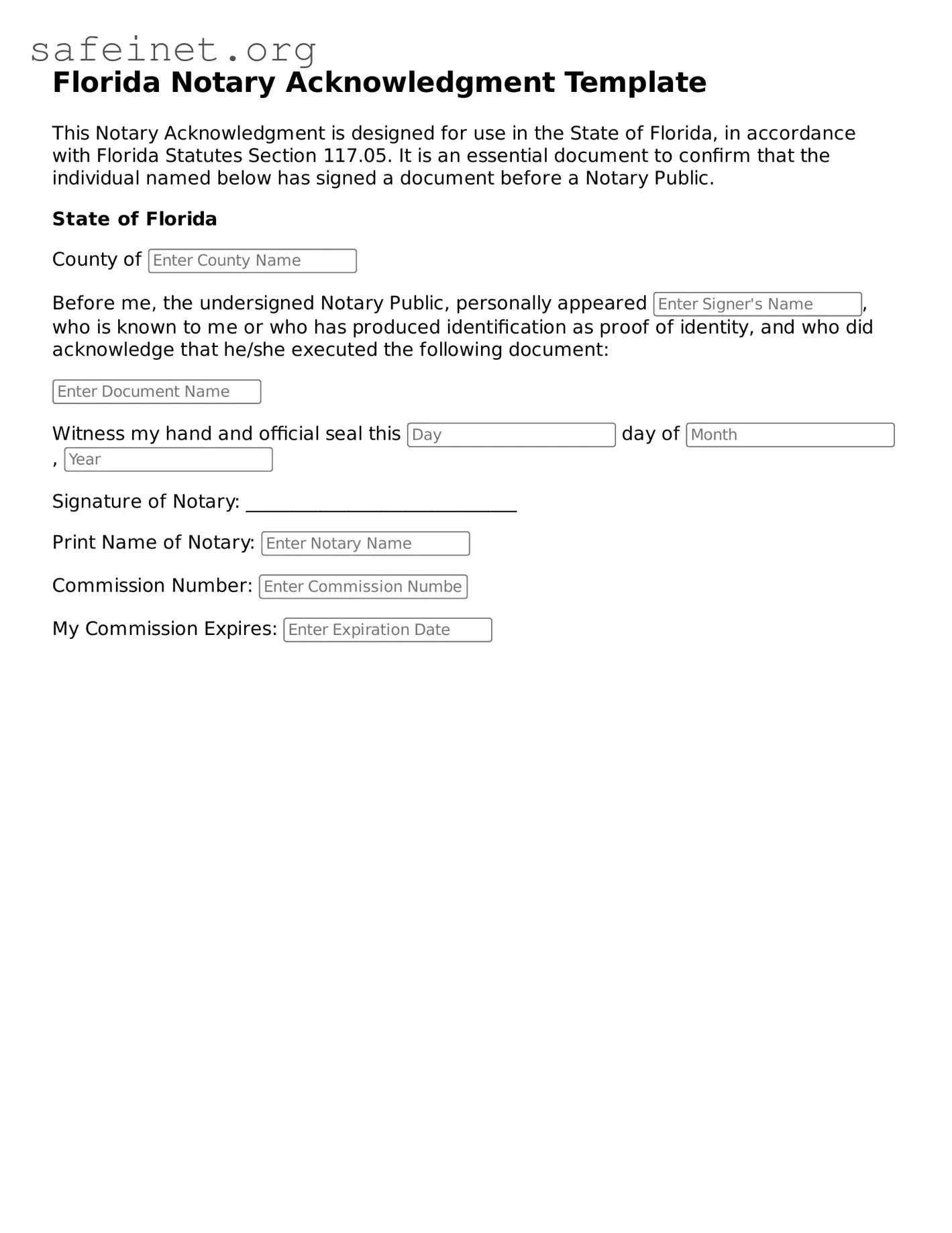What is a Florida Notary Acknowledgment form?
The Florida Notary Acknowledgment form is a legal document that allows a notary public to certify that a signer personally appeared before them and acknowledged executing a document. This form serves to verify the identity of the signer and to confirm that they signed the document voluntarily. It is commonly used in real estate transactions, legal agreements, and various other legal documents that require notarization.
When is a Notary Acknowledgment required in Florida?
A Notary Acknowledgment is typically required when a document needs to be recorded with a government office, such as the clerk of court or county recorder's office. This includes documents like deeds, mortgages, and certain declarations. Additionally, some organizations and institutions may request a Notary Acknowledgment to ensure the authenticity of signatures on important documents.
What information is included in a Florida Notary Acknowledgment?
A Florida Notary Acknowledgment form includes several key pieces of information. It typically contains the name of the signer, a statement that the signer appeared before the notary, a declaration that the signature was made voluntarily, and the date when the acknowledgment occurred. The notary's signature, seal, and commission expiration date are also essential components of the form.
How do I find a notary public in Florida?
Finding a notary public in Florida is straightforward. You can search online through various websites that list notaries, or you can visit local banks, law offices, or libraries, as many have notaries on staff. Additionally, some businesses specialize in notary services and may offer mobile notary services for added convenience.
Is there a fee for a Notary Acknowledgment in Florida?
Yes, notaries in Florida are allowed to charge a fee for their services. As of October 2023, state law permits a maximum fee of $10 per notarial act. It is advisable to confirm the fee before the appointment, as some notaries may charge additional costs for travel or other services.
